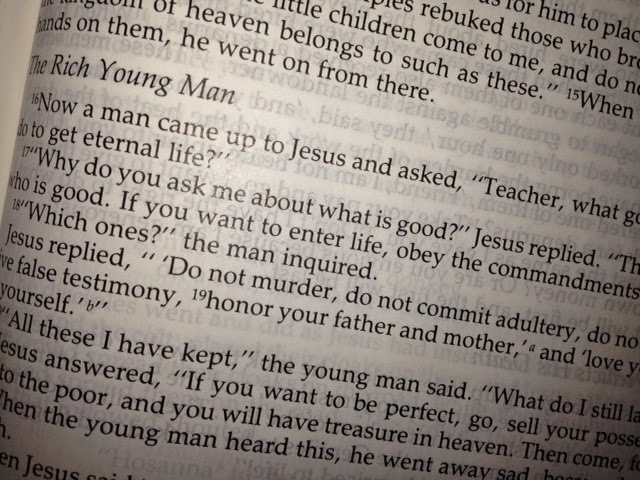The other day I was reading an article that said biblical
names are declining in popularity. Aha. That’s why I haven’t heard of any
babies lately being named Mephibosheth, Absalom, Hophni, Jereboam or Eliphelet!
And given the ruthless reputation of Queen Jezebel (1 Kings 18-21), it’s no
wonder that’s not a name of choice in maternity wards around the nation. Who
would want their child associated with such an evil person?
There’s no question a name can have tremendous impact. For
instance, when you hear the name Ponzi, what comes to mind? If you’re not
familiar with it, Charles Ponzi was a businessman and con artist who in 1920
swindled trusting investors out of $20 million by promising spectacular returns
on their investments. Today, his name is often associated with similarly
devious schemes.
We can think of other names throughout history that immediately
conjure negative images – Hitler, Genghis Khan, Benedict Arnold, Tokyo Rose.
But names also can carry great positive meaning. If you think of a favorite
relative, or someone you’ve worked with that was greatly admired, chances are
that person’s name always brings a smile to your face and lifts your spirits.
This is why Proverbs 10:7 states, “The memory of the righteous will be a blessing, but the name of the
wicked will rot.” Another verse reinforces that idea: “A good name is more desirable than great riches; to be esteemed is
better than silver or gold” (Proverbs 22:1).
For a brief time, Charles Ponzi accumulated “silver and
gold” at the expense of others, but to this day, his name is rotting, spoken
with disdain and scorn.
It’s a sobering thought to wonder how people react when they
mention or hear our own name. Do they utter it fondly, in a trusting or loving
manner? Or do they want to spit it out, like a spoonful of bitter medicine?
So how can we gain – and maintain – a name worthy of being
spoken? One way is by pursuing and seeking to uphold human virtues that most
people value, such as integrity, humility, sincerity and compassion.
Galatians 5:22-23 offers a list of traits that would attract
us to anyone. Having cited an array of distasteful behaviors, including sexual
immorality, hatred, jealousy, fits of rage and selfishness, the passage
declares, “But the fruit of the Spirit is
love, joy, peace, patience, kindness, goodness, faithfulness, gentleness and
self-control….”
Most of us would agree these are worthwhile qualities, but
we’d also be quick to admit they’re not easily lived out. “I’d like to be like
that, but I fail to do so more times than I can count!”
The following verses offer the “secret” for being able to
manifest those qualities in a consistent manner. “Those who belong to Christ Jesus have crucified the sinful nature with
its passions and desires. Since we live by (Christ’s) Spirit, let us keep in
step with the Spirit” (Galatians 5:24-25).
What this tells me is that when it comes to living the
so-called “Christian life,” holding to the standard of life God calls us to
live, the reality is we can’t do it – not in our own strength. It’s beyond the
capacity of what the Bible terms our “flesh,” our “sinful nature.” Instead, we
have to rely on the power of Christ in us, agreeing with the apostle Paul when
he wrote, “…I no longer live, but Christ
lives in me” (Galatians 2:20).
This is a simple truth – but one that demands an entire
lifetime to learn, and relearn, and learn again. I know, because I’m still very
much in the midst of the learning process.







